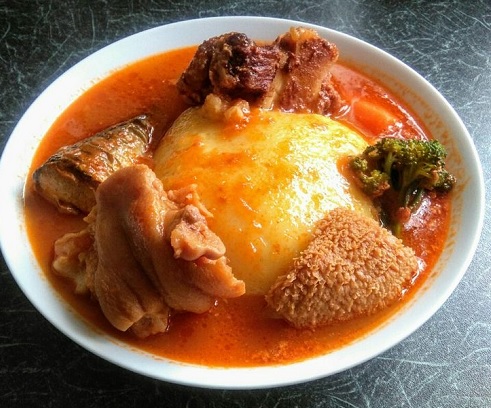
Being quintessentially Ghanaian
It is said (perhaps in jest, perhaps not) that there is no country on earth where you will not find a Ghanaian busily pursuing the proverbial green pastures.
This includes Greenland, a country whose name is quite paradoxical, given that the land there is covered with snow most of the time rather than lush greenery.
It appears there is a permanent Ghanaian itch to travel abroad, and over the years, certain countries appear to rise and fall in the popular imagination in terms of the draw factor.
Migration waves
Growing up in the 1970s and early 80s, I remember the ‘Agege’ craze, when Nigeria’s oil boom drew many Ghanaian professionals and non-professionals to that country, a situation which was exacerbated by Ghana’s declining economic fortunes at the time.
Libya, Liberia, Germany, South Africa and The Netherlands have all at various points featured strongly in this ‘migration wave’ narrative, with Western European countries in general being a constant pull even to this day.
Unsurprisingly, the ultimate dream destination, especially of many young people I have met, is the United States, perhaps because the country has marketed itself globally through soft tools such as the movie and music industries, as the greatest on earth where dreams come true – God’s own country, so to speak.
Without even owning a passport, some are quite clear in their minds about which state in the US they would prefer to settle in one day!
Straddling two worlds
Interestingly, however despondent one is about Ghana before emigrating abroad, this quickly dissipates once the novelty of finding oneself in one’s dream country wears off and the reality of being a foreigner starts to hit home.
Even years of sojourning abroad, complete with the acquisition of that country’s citizenship, cannot quite displace one’s ‘Ghanaian-ness’, which brings home the saying that however long a log stays in the river, it can never become a crocodile.
In foreign climes, Ghanaian food and music hit home particularly hard. After all, it is difficult to substitute a lifetime diet of soul foods such as cocoyam fufu with light soup and assorted meats or waakye with all its trimmings for hot dogs, vegetable ratatouille or beef lasagne.
Music by Lumba, Kofi Kinaata or the Wulomei group hits differently from say, Beethoven’s ‘Fifth Symphony in C Minor’ or Frank Sinatra’s ‘My Way’. Oh, and the weather!
Whether acquiring property back home to which one hopes to retire one day or maintaining an interest in family affairs or national politics back home, the average Ghanaian abroad essentially straddles two worlds and manages to find their rhythm and balance.
Essentially, therefore, you can take the Ghanaian out of Ghana but you cannot take the Ghana out of the Ghanaian.
Ghanaians abroad have managed to carve some Ghanaian space in their countries of residence where their numbers are considerable – Ghanaian churches, barbering shops, radio stations, restaurants and bars, among others, in a bid to emphasise a unique brand.
Coalescing social quirks
With the challenges in our country, it is easy and quite understandable to be in despair, especially if you are a young person facing the horrors of unemployment, and to seek to emigrate (or to ‘jakpa’, in modern parlance) quickly and put Ghana behind you, possibly never to return.
But interestingly, like ex-lovers, there are moments of fond memories after the ‘jakpa’ dream is achieved, and these can be quite strong to result in what may be called ‘old firewood syndrome’, whereby the flames of love rekindle easily, with a yearning for certain simple pleasures back home one may have taken for granted.
The Ghanaian identity is thus shaped slowly over one’s lifetime and reinforced by certain quirks that slowly build up and then coalesce.
Ours is a country where it is quite a standard to see a 40-year-old youth organiser of a group, where you will find a football club called Berekum Chelsea, a culvert called London Bridge and suburbs called Russia, Ashaiman Lebanon or Ashaiman Jericho.
In certain parts, we have an almost morbid fascination with funerals, for which it is almost de rigeur to block public roads, with feasting and live bands almost standard.
It is a country where young Christian and Muslim friends jointly enjoy Christmas and Sallah, where an invitation to join someone to eat is not to be taken literally and accepted, where we have invented our brand of English words and phrases (“I am coming”, when the person is actually walking away from you and will be back soon; ‘they are from one mother one father’, ‘chop bar’, ‘chop money’ ‘petrol shell’ etc ), where ‘Graphic’ means newspaper and ‘pepsodent’ means toothpaste, and where the use of the left hand in public is deemed offensive.
We prefer an elastic attitude to time-keeping, with a 2 pm appointment conveniently interpreted to mean ‘2, 2.30 to 3’
We love to laugh at ourselves and our politicians in particular.
Being humble (whatever that means) takes you far in politics, religious piety is an attribute even as corruption flourishes, every minor artiste is a celebrity, and the secondary school one attended is far more important than one’s former primary school or tertiary institution, among many others.
It is also claimed the Ghanaian loves to answer questions with questions.
Some of these things can grate on the nerves even as a Ghanaian, but together – the good, the bad and the plain ugly, these strands weave into each other like authentic kente cloth and define the very essence of our quintessential, unique Ghanaian identity – warts and all.
After all, as our elders say, however foul the taste of your gum is, you can only lick yours and not someone else’s.
Rodney Nkrumah-Boateng,
Head, Communications & Public Affairs Unit,
Ministry of Energy.
E-mail:
